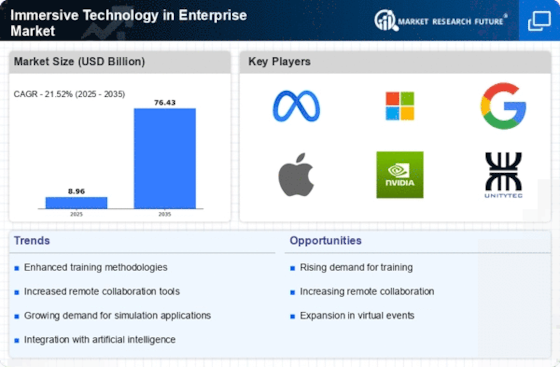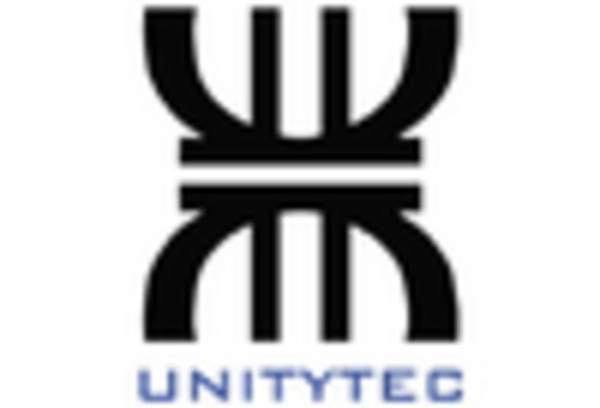Market Share
Immersive Technology in Enterprise Market Share Analysis
The enterprise market has been witnessing a profound transformation with the rapid integration and adoption of immersive technologies. Immersive technology, which includes virtual reality (VR), augmented reality (AR), and mixed reality (MR), has become a focal point for businesses seeking innovative solutions to enhance various aspects of their operations. One prominent market trend is the increasing use of immersive technology for training and development purposes. Enterprises are leveraging VR and AR to create realistic and interactive training simulations, allowing employees to acquire new skills and knowledge in a safe and controlled virtual environment. This not only improves the effectiveness of training programs but also reduces the costs associated with traditional training methods.
Another notable trend is the application of immersive technology in the field of remote collaboration and communication. As global workforces become more dispersed, businesses are turning to VR and AR solutions to facilitate virtual meetings, collaborative design sessions, and remote teamwork. These technologies enable a more immersive and engaging communication experience, bridging the geographical gaps and fostering better collaboration among team members. This trend has gained significant traction, especially in industries where remote work is prevalent, such as technology, design, and engineering.
The enterprise market is also witnessing a surge in the adoption of augmented reality for maintenance and repair tasks. AR applications are being developed to provide on-the-job support for technicians and field service workers by overlaying digital information onto the physical world. This aids in troubleshooting, equipment maintenance, and repair processes, leading to improved efficiency and reduced downtime. Industries such as manufacturing, energy, and healthcare are increasingly embracing AR for its potential to streamline maintenance workflows and enhance overall operational efficiency.
Furthermore, immersive technology is making significant inroads into the marketing and sales domains. Businesses are exploring VR and AR solutions to create immersive and personalized experiences for their customers. Virtual showrooms, product visualizations, and interactive demonstrations are being used to captivate consumers and drive engagement. This trend is particularly pronounced in industries like real estate, automotive, and retail, where immersive experiences can provide customers with a realistic preview of products or services before making a purchase decision.


















Leave a Comment